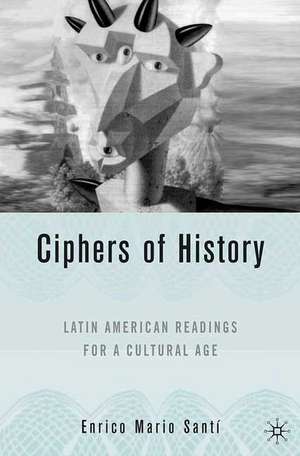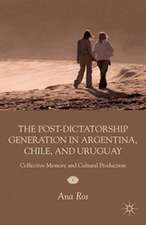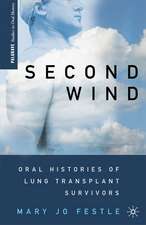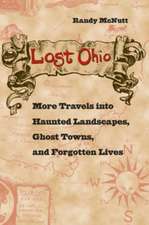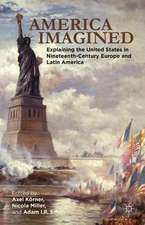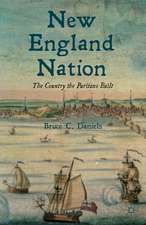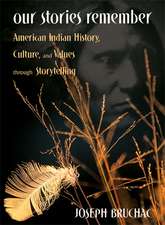Latin American Readings for a Cultural Age: Latin American Readings for a Cultural Age: New Directions in Latino American Cultures
Autor E. Santien Limba Engleză Hardback – feb 2006
Din seria New Directions in Latino American Cultures
-
 Preț: 298.91 lei
Preț: 298.91 lei -
 Preț: 301.72 lei
Preț: 301.72 lei -
 Preț: 303.28 lei
Preț: 303.28 lei -
 Preț: 312.97 lei
Preț: 312.97 lei -
 Preț: 278.55 lei
Preț: 278.55 lei -
 Preț: 197.33 lei
Preț: 197.33 lei -
 Preț: 357.57 lei
Preț: 357.57 lei -
 Preț: 302.20 lei
Preț: 302.20 lei -
 Preț: 302.20 lei
Preț: 302.20 lei -
 Preț: 383.93 lei
Preț: 383.93 lei -
 Preț: 386.22 lei
Preț: 386.22 lei -
 Preț: 386.81 lei
Preț: 386.81 lei - 15%
 Preț: 693.57 lei
Preț: 693.57 lei -
 Preț: 385.62 lei
Preț: 385.62 lei -
 Preț: 389.70 lei
Preț: 389.70 lei -
 Preț: 379.09 lei
Preț: 379.09 lei -
 Preț: 380.63 lei
Preț: 380.63 lei - 15%
 Preț: 497.45 lei
Preț: 497.45 lei - 15%
 Preț: 640.88 lei
Preț: 640.88 lei -
 Preț: 387.38 lei
Preț: 387.38 lei -
 Preț: 379.09 lei
Preț: 379.09 lei -
 Preț: 387.75 lei
Preț: 387.75 lei - 15%
 Preț: 639.25 lei
Preț: 639.25 lei - 15%
 Preț: 581.98 lei
Preț: 581.98 lei - 15%
 Preț: 640.06 lei
Preț: 640.06 lei -
 Preț: 388.34 lei
Preț: 388.34 lei -
 Preț: 386.81 lei
Preț: 386.81 lei -
 Preț: 385.84 lei
Preț: 385.84 lei -
 Preț: 383.71 lei
Preț: 383.71 lei -
 Preț: 384.86 lei
Preț: 384.86 lei -
 Preț: 386.22 lei
Preț: 386.22 lei -
 Preț: 387.96 lei
Preț: 387.96 lei -
 Preț: 388.72 lei
Preț: 388.72 lei -
 Preț: 380.45 lei
Preț: 380.45 lei
Preț: 414.30 lei
Nou
Puncte Express: 621
Preț estimativ în valută:
79.29€ • 81.20$ • 65.95£
79.29€ • 81.20$ • 65.95£
Carte tipărită la comandă
Livrare economică 18 martie-01 aprilie
Preluare comenzi: 021 569.72.76
Specificații
ISBN-13: 9781403970466
ISBN-10: 1403970467
Pagini: 277
Ilustrații: X, 277 p.
Dimensiuni: 140 x 216 x 21 mm
Greutate: 1.03 kg
Ediția:2006
Editura: Palgrave Macmillan US
Colecția Palgrave Macmillan
Seria New Directions in Latino American Cultures
Locul publicării:New York, United States
ISBN-10: 1403970467
Pagini: 277
Ilustrații: X, 277 p.
Dimensiuni: 140 x 216 x 21 mm
Greutate: 1.03 kg
Ediția:2006
Editura: Palgrave Macmillan US
Colecția Palgrave Macmillan
Seria New Directions in Latino American Cultures
Locul publicării:New York, United States
Cuprins
Introduction Poetry and the Cold War: Pablo Neruda's "Canto General" This Land of Prophets: Walt Whitman in Spanish America Sor Juana, Octavio Paz and Poetics of Restitution Through the Grapevine: Rulfo, Garro and National Allegory 98: Narcissism and Melancholy After the Revolution: Strawberry and Chocolate, or the Politics of Reconciliation Fernando Ortiz: Counterpoint and Transculturation Appendix 1: Latinamericanism Appendix 2: The Neruda Whitmaniana
Notă biografică
ENRICO MARIO SANTI is William T. Bryan Professor of Hispanic Studies and the University of Kentucky, USA. He serves on editorial boards of a dozen scholarly journals, among them Hispanic Review, the flagship of the field, and on the Research Council of the Center for a Free Cuba, a Washington, D.C. think tank. His research has been supported over the years by fellowships from The Woodrow Wilson Center for Scholars, the American Council of Learned Societies, the National Endowment for the Humanities, the American Philosophical Society, as well as the John Simon Guggenheim Memorial Foundation.
